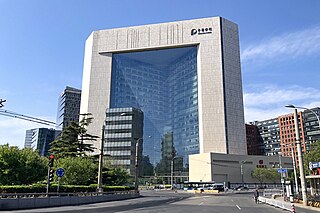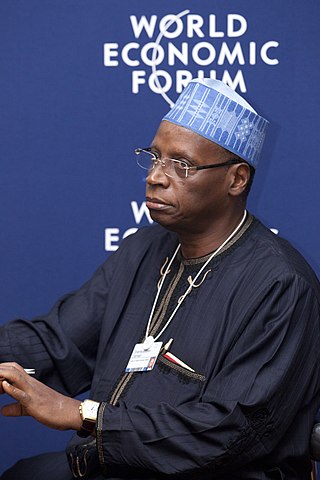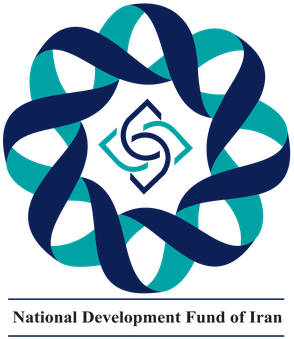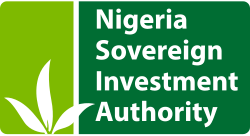The Alaska Permanent Fund (APF) is a constitutionally established permanent fund managed by a state-owned corporation, the Alaska Permanent Fund Corporation (APFC). It was established in Alaska in 1976 by Article 9, Section 15 of the Alaska State Constitution under Governor Jay Hammond and Attorney General Avrum Gross. From February 1976 until April 1980, the Department of Revenue Treasury Division managed the state's Permanent Fund assets, until, in 1980, the Alaska State Legislature created the APFC.

The Abu Dhabi Investment Authority is a sovereign wealth fund owned by the Emirate of Abu Dhabi in the United Arab Emirates, founded to invest funds on behalf of the Government of Abu Dhabi. It manages the emirate's excess oil reserves and is estimated to manage $853 billion. ADIA is one of the largest sovereign wealth funds in the world.
The Kuwait Investment Authority (KIA) is the Middle East's oldest sovereign wealth fund, managing the state’s reserve and the state’s future generation fund (FGF).
The Future Fund is an independently managed sovereign wealth fund established in 2006 to strengthen the Australian Government's long-term financial position by making provision for unfunded superannuation liabilities for politicians and other public servants that will become payable during a period when an ageing population is likely to place significant pressure on the Commonwealth's finances. As of September 2023, the fund has US$136 billion in assets under management.

A sovereign wealth fund (SWF), sovereign investment fund, or social wealth fund is a state-owned investment fund that invests in real and financial assets such as stocks, bonds, real estate, precious metals, or in alternative investments such as private equity fund or hedge funds. Sovereign wealth funds invest globally. Most SWFs are funded by revenues from commodity exports or from foreign-exchange reserves held by the central bank.

China Investment Corporation is a sovereign wealth fund that manages part of China's foreign exchange reserves. China's largest sovereign fund, CIC was established in 2007 with about US$200 billion of assets under management, a number that grew to US$1,200 billion in 2021 and US$1,350 billion in 2023.

The Libyan Investment Authority is a government-managed sovereign wealth fund and holding company headquartered in Tripoli, Libya. It was established on August 28, 2006, by Decree 208 of the General People's Committee of Libya (GPC), after the lifting of economic sanctions that had previously precluded foreign investment in Libya. The LIA oversees and manages investments in various areas including agriculture, real estate, infrastructure, oil and gas and in shares and bonds. It is Africa's largest sovereign wealth fund. The fund is a member of the International Forum of Sovereign Wealth Funds and is therefore signed up to the Santiago Principles on best practice in managing sovereign wealth funds. In September 2023, the fund has US$67 billion in assets under management.
The Korea Investment Corporation is a sovereign wealth fund established by the government of South Korea in 2005. Its mission is to preserve and enhance the long-term purchasing power of South Korea's sovereign wealth through efficient management of public funds in the international financial markets. KIC manages assets entrusted by the Government, the Bank of Korea, and other public funds as defined under the National Finance Act. KIC directly invests the entrusted assets or re-entrusts the assets to external managers. As of September 2023, KIC has $169 billion assets under management.

Shamsuddeen Usman,, is a Nigerian economist, banker, technocrat and public servant. He is currently the CEO of SUSMAN & Associates, an economic, financial and management consulting firm headquartered in Nigeria. He was the Finance Minister of Nigeria between June 2007 and January 2009 and also served as the Minister of National Planning from January 2009 to September 2013. Usman is the Chairman of Citibank Nigeria Limited.
Oman Investment Authority is a sovereign wealth fund in Oman. It is one of few entities where the Sultanate of Oman channels its excess oil revenues. It was founded in 2020 by a royal decree and is a member of the International Forum of Sovereign Wealth Funds and is therefore signed up to the Santiago Principles on best practice in managing sovereign wealth funds. Its objectives are purely financial. That means it does not invest in companies with the view of otherwise benefiting the local economy, nor other goals.

Samruk-Kazyna, officially known as the National Welfare Fund "Samruk-Kazyna", is a sovereign wealth fund and joint stock company in Kazakhstan which owns, either in whole or in part, a number of major companies in the country. This includes the national rail and postal service, the state oil and gas company KazMunayGas, the state uranium company Kazatomprom, Air Astana, and others. The state is the sole shareholder of the fund.
The Santiago Principles or formally the Sovereign Wealth Funds: Generally Accepted Principles and Practices (GAPP) are designed as a common global set of 24 voluntary guidelines that assign best practices for the operations of Sovereign Wealth Funds (SWFs). They are a consequence of the concern of investors and regulators to establish management principles addressing the inadequate transparency, independence, and governance in the industry. They are guidelines to be followed by sovereign wealth fund management to maintain a stable global financial system, proper controls around risk, regulation and a sound governance structure.

The National Development Fund of Iran is Iran's sovereign wealth fund. It was founded in 2011 to supplement the Oil Stabilization Fund. NDFI is independent of the government's budget. Based on Article 84 of the Fifth Five-year Socio-Economic Development Plan (2010–2015), the National Development Fund was established to transform oil and gas revenues to productive investment for future generation. It is a member of the International Forum of Sovereign Wealth Funds and therefore is signed up to the Santiago Principles on best practice in managing sovereign wealth funds. Withdrawing any money from this fund requires Khamenei's permission.

The Sovereign Wealth Fund Institute is an American corporation analyzing public asset owners such as sovereign wealth funds and other long-term governmental investors. Initially, the Sovereign Wealth Fund Institute focused solely on sovereign wealth funds. It has branched out to cover all types of public institutional investors. The institute sells its subscription and API/datafeed services as a financial data vendor but provides information to the media as well.

The Fundo Soberano de Angola is the sovereign wealth fund of Angola. It is a member of the International Forum of Sovereign Wealth Funds, and therefore has signed up to the Santiago Principles on best practice in managing sovereign wealth funds. The FSDEA is meant to play an important role in promoting Angola’s social and economic development and generating wealth for its people. The fund was rated by the SWFI in February 2015 with a ranking of 8 out of 10.
The Fondo Mexicano del Petróleo para la Estabilización y el Desarrollo is a state-owned sovereign wealth fund of Mexico's government created to manage the wealth from revenue stream on its oil industry. The inception of the fund was designed by the Ministry of Finance and Public Credit while Banco de Mexico manages the fund. The fund begun existence on 30 September 2014 but actual operation of the fund started on 1 January 2015 to become the newest addition in global sovereign wealth fund. The establishment of the fund forms part of the energy reform in Mexico following the declining production of oil that has affected the budget of the national government. The fund is a member of the International Forum of Sovereign Wealth Funds and are signed up to the 24 Santiago Principles which are a voluntary standard of best practice endorsed by the members for the management of the Sovereign Wealth Funds.
Africa Finance Corporation (AFC) is a pan-African Multilateral Development Financial Institution established in 2007 by sovereign African states to provide pragmatic solutions to Africa's infrastructure deficit and challenging operating environment. The Corporation bridges the infrastructure investment gap through the provision of debt and equity finance, project development, technical and financial advisory services.
The International Forum of Sovereign Wealth Funds (IFSWF) is a nonprofit international group of sovereign wealth funds managers which was established in 2009. It is based in London, England.

The Sovereign Fund of Egypt is a Sovereign wealth fund, owned by the Arab Republic of Egypt, Its established in 2018 by Law No. 177 of 2018 and amended by Law No. 177 of 2020, with the aim of contributing to the financial economic development of Egypt through the management of funds and assets owned or transferred to it, as well as investing in many different economic activities.










